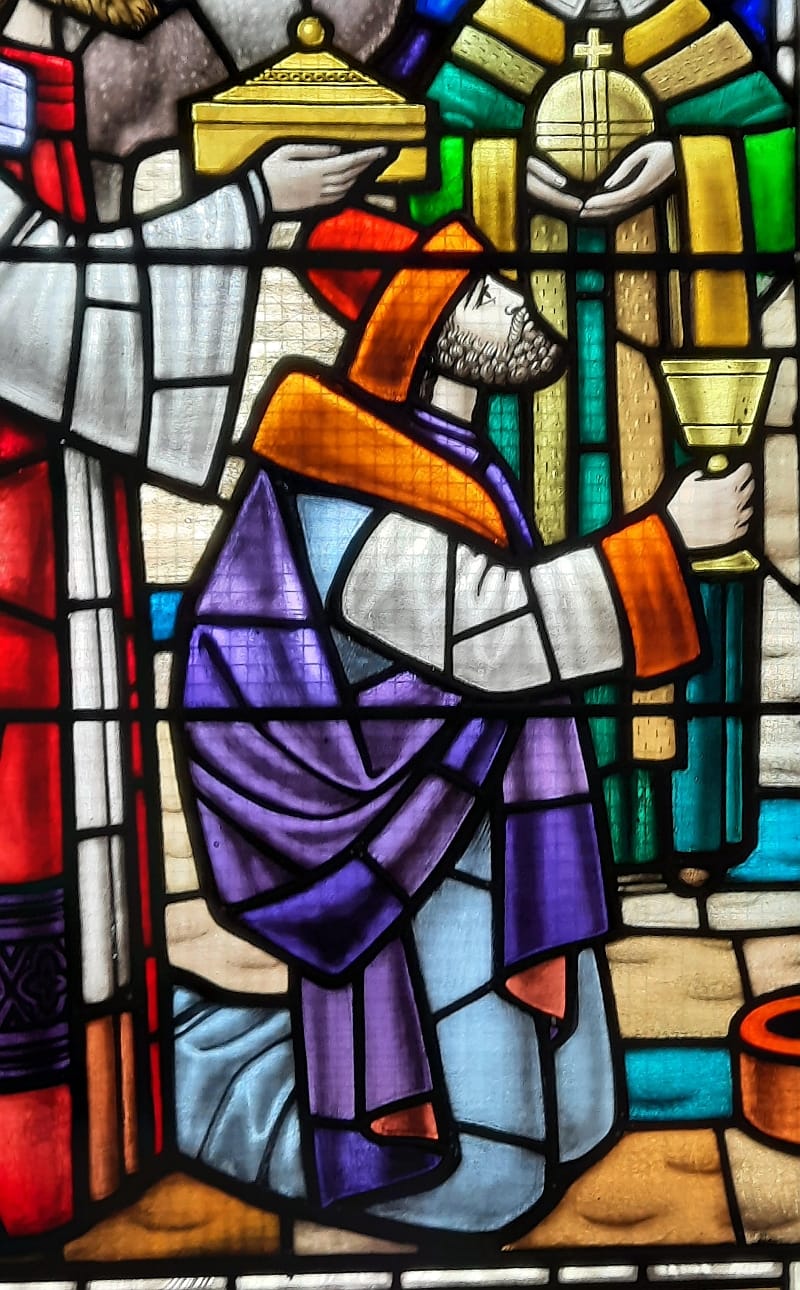
Today we celebrate Epiphany, the manifestation of Christ to the world. Epiphany has been celebrated since the third century. Originally, Jesus’ birth, baptism and the visit of the Magi were celebrated together on January 6, since they were all occasions of his manifestation to the world. However sometime in the third century, it was decided that the events were so special that they should be celebrated separately.
Today, for us, Epiphany celebrates the visit of the Magi, a small but significant incident in the life of Jesus and his family.
The night before Epiphany is known as Twelfth Night, as in Twelve Days of Christmas. At Epiphany, we remember the visit of the wise men. In some cultures, presents are exchanged at Epiphany rather than at Christmas because that’s when the wise men brought presents for the baby Jesus.
But why Epiphany? The term epiphany means "to show" or "to make known" or even "to reveal." In Christian terms, Epiphany is God’s self-revelation to the world. So, the visit of the magi is only one of many epiphanies recorded in the Bible. You could say that Moses had an epiphany when he encountered God in the burning bush, and Paul had an epiphany on the road to Damascus. The visit of the Magi is the first in our
season of Epiphany and over the next few weeks we will hear of other epiphanies in the Gospels.
But let’s get back to the visit of the wise men, the Magi, these men who appeared in Jerusalem looking for the baby born to be King of the Jews. Matthew doesn’t tell us their names or even how many wise men there were. Traditionally we say Three Wise Men because that’s how many gifts Matthew recorded them bringing and we assume that there was one gift from each man.
Have you ever wondered about the star and why no one else seemed to have noticed it? For me, that seems to be part of the irony of the story. Right back in the book of Numbers, Balaam prophesied that “a star shall come out of Jacob and a sceptre shall rise out of Israel.” [1]
But until these men from the East pointed out the existence of this star no one seems to have paid it any attention. Surely if it was clear enough for them to follow it was somehow different to the other stars in the sky.
Another irony in the story of the visit of the wise men is that Israel was chosen by God to be ‘a kingdom of Priests and a holy nation.’ [2]
They were the ones who were supposed to be showing the way to God, bringing other nations into a right relationship with God. And yet, here were these foreigners responding to God’s sign and showing the people of Israel, represented by King Herod, how to find the Messiah in the form of the baby Jesus.
Amazingly, King Herod believed the visitors and asked the chief priests and the scribes where the Messiah would be born. They were able to tell him, but they didn’t seem to have done anything themselves to check whether the Messiah had indeed been born.
There were three interesting groups of actors on the stage, weren’t there? The wise men who were open to the evidence of God’s working in and through creation and who willingly responded to God, even if they didn’t necessarily know which god; King Herod who actively resisted God’s will while publicly declaring his willingness to worship God; and the chief priests and the scribes who had all the necessary knowledge of God but who seem remarkably passive in this story. And then, of course, we have God who is in charge and who out-manoeuvres Herod.
Matthew used this story to set the scene for his account of the rest of Jesus’ life.
He told us that the wise men gave Jesus three gifts: gold, frankincense and myrrh.
Gold for a King, frankincense for a Priest, and myrrh for a dead body. And he showed that all of this happened through the actions of God. While Matthew had only just introduced the baby Jesus, his readers would have known a great deal about who Jesus was to become.
If all of this happened so long ago, why is it important to us? I believe that this story reminds us:
- That God is in control, even when events seem to indicate otherwise.
- The most unexpected people can point us to God, or help us see God’s spirit moving in ways and places that we hadn’t noticed
- We should remember that things are not always as they seem, but God sees and
knows all - As Christians, we are called to encourage others in their relationship with God
